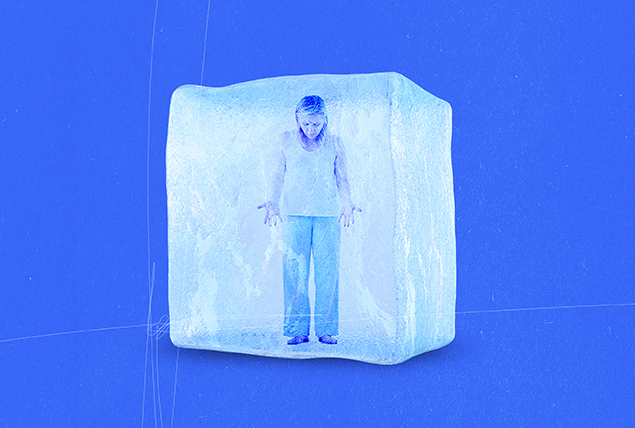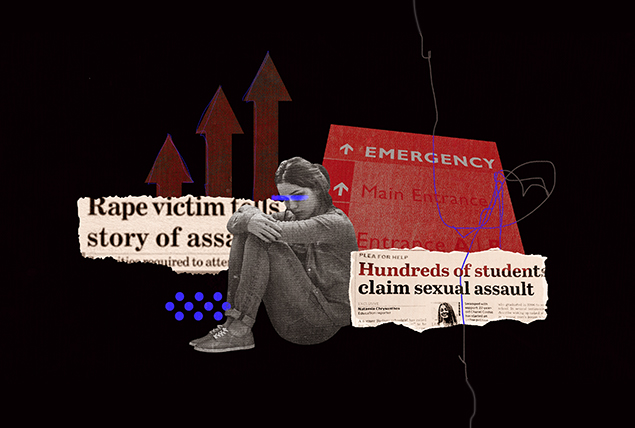Harnessing the Healing Potential of Psychedelic-Assisted Therapies

A lot of experiences in life can leave lasting scars. Some merely scratch the surface. Others claw into our innermost depths. Some you can see, while others remain hidden.
The ensuing trauma from inflicted wounds is diverse and requires individualized care. Undoubtedly, some of the deepest scars occur as a result of sexual violence, which is a far-reaching issue.
Statistics reveal an American is sexually assaulted every 68 seconds. Victims can develop lasting complications, including post-traumatic stress disorder (PTSD). This means they experience distressing emotions and cognitions related to the traumatic event for periods far exceeding the end of the trauma. The impact of sexual violence can negatively affect the function and quality of the rest of someone's life.
PTSD has been treated for a long time, but in recent years, psychedelic drugs have been combined with psychotherapy to aid recovery. Psychedelic therapies remain in their early stages, but research suggests potentially beneficial outcomes.
Psychedelics for PTSD
Psychedelics alter users' sense of reality because of their neurological influence.
In therapeutic settings, three psychedelics—ketamine, psilocybin and 3,4-methylenedioxymethamphetamine (MDMA, more commonly known as ecstasy or Molly)—have generated buzz because of their potential helpfulness with certain treatment-resistant mental health conditions, particularly depression and PTSD.
"The substances interact with specific receptors in the brain, affecting serotonin and other neurotransmitter systems, which may alter perception, cognition and emotions," said Bryan Henry, M.D., president of telehealth clinic PsychMD in Vero Beach, Florida. "They can also facilitate increased connectivity and communication between brain regions, leading to novel insights and a temporary suspension of rigid thought patterns."
Serotonergic psychedelics such as psilocybin and MDMA have an added benefit. Because they cause activity in receptors associated with dopamine, sexual desire and testosterone, they can improve sexual functioning.
In sexual assault PTSD, people who were prescribed psychedelic therapy experienced renewed desires for intimacy in spite of trauma. MDMA was helpful for couples who want to deepen their emotional and physical intimacy.
Note, however, that this doesn't mean having sex while taking a drug, as psychedelics typically impair sexual functioning in the moment. Rather, they are used following intercourse or in a clinical setting.
Moreover, Henry pointed to ketamine therapy's efficacy in helping individuals with PTSD (including sexual abuse and trauma victims) because it modulates the brain's glutamate system, believed to contribute to the development and maintenance of symptoms. The subsequent system disruption can potentially break negative feedback loops associated with traumatic memories and emotions.
Psychedelics allow people to reveal parts of themselves hiding under the surface of consciousness, according to Dave Rabin, M.D., Ph.D., a neuroscientist, psychiatrist and co-founder of Apollo Neuroscience in Pittsburgh—parts they don't normally feel safe or comfortable enough to breach in their normal mind state.
This is extremely beneficial for people with sexual assault PTSD, as they are quite often robbed of their sense of safety.
Transcending sexual trauma
According to Henry and Rabin, psychedelic therapy allows patients to remake the meaning of traumatic events in a safe, nonjudgmental context, leading to therapeutic insights, emotional healing and personal growth. Psychiatrists trained in both medicine and psychotherapy conduct the therapy, to provide safe dosing and ongoing clinical supervision and protocol.
"It's a very intense process of three sessions, eight hours each with two therapists over 12 weeks with 42 hours of psychotherapy," Rabin said. "So far, it has proven to be more effective at treating PTSD for sexual trauma than any other treatment that we've seen to date, which is very exciting for our field."
He said the easiest way to think about psychedelic medicines is to consider them as amplifiers of safety within therapeutic environments, overwhelming the fear response and facilitating the healing process.
Henry said victims can experience increased emotional resilience, furthering the willingness to explore difficult emotions and memories. Both experts said feelings of safety are paramount in psychedelic therapy.
"If you don't remember what it's like to feel safe, then your body has been in a fear state for a long time," Rabin said. "In the fear state, our bodies don't function well. It's hard to sleep, it's hard to focus, it's hard to have relationships, it's hard to focus on really anything other than getting away from a threat."
Despite its merits, psychedelic therapy isn't for everyone.
Henry and Rabin agreed it's important to undergo a thorough professional assessment to determine eligibility. They said candidates with mental illnesses such as schizophrenia or psychotic, delusional, dissociative or bipolar disorder(s) are inadvisable due to elevated risk of adverse side effects.
Furthermore, people with a history of addiction are susceptible to dependence or misuse, especially with repeated or high doses. People with cardiovascular diseases are not good candidates either, due to the drugs' effects on blood pressure and heart rate.
"Its rapid-acting antidepressant effects and potential for enhancing psychotherapy make it an intriguing option," Henry said. "However, further research is needed to fully understand its long-term effects, optimal dosing protocols and potential risks."
Additionally, barriers to access to this kind of care exist for a couple of reasons. One, adequately trained professionals in psychedelic therapy are lacking. Two, the treatments are often expensive.
Rabin said a course of ketamine treatment can cost $4,000 to $7,000, and if MDMA receives approval, the estimated total will be $10,000 to $14,000. He said that for psychiatrists and researchers in the field, the focus is on making treatments more accessible to people most in need and increasing professional training.
Henry added that his own experience at PsychMD suggested at-home ketamine pricing starting around $400 per week.
"People who have never experienced relief from their harsh [trauma] symptoms can experience a few sessions of psychedelic-assisted therapy and then feel like they have their entire lives given back to them," Rabin said. "Like they have a new shot. Like they've turned over a new leaf. It's really restorative for people in terms of reminding them that they have control over how they feel."


















